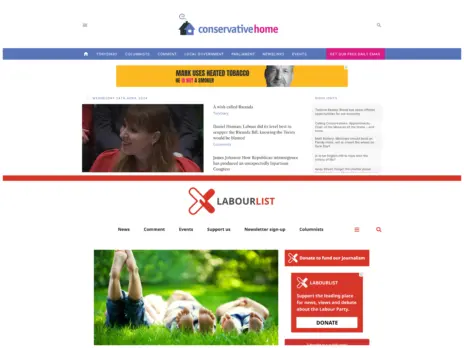Analysis: While ‘open’ Guardian faces financial meltdown, paywalled Times is breaking even
Guardian News and Media has announced plans to cut annual costs by £53.6m in order to curb its rising losses.
As of last year GNM employed 968 “core editorial staff”. The company has not yet revealed how many journalists are to go as part of the planned cost cuts but 20 per cent of the current editorial total would be 194 positions.
Asked whether journalism jobs are under threat at GNM, a spokesperson said: “All budget holders have been asked to review their cost base and achieve savings in the most sustainable way, including editorial. We do not, however, wish to damage our journalistic integrity and the quality of our editorial products and offering as they are key to our future growth and development.”
According to The Guardian, GNM is expected to lose more than £50m in the year to the end of March, more than double last year’s total.
Costs have escalated due to rapid expansion in Australia and America.
As of April last year GNM parent company, Guardian Media Group, had £838.3m in the bank thanks largely to the sale of Trader Media Group.
According to The Guardian, this investment fund has been depleted by more than £100m and currently stands at £735m. At the current rate of spending GNM will run out of money within the next eight years.
A GNM spokesperson the current forecast is for “cash outflow of about £80m for this year”, with the rest of the drop due to other factors such as “changing market valuation of the portfolio”.
The company today announced a new three-year business plan which aims to make GNM break even on an operating level by 2018/2019.
GNM has not broken even for at least a decade and lost more than £300m over the last ten years.
According to a company announcement the three year-plan aims to:
- Cut annual costs of £268m by 20 per cent
- Break even at operating level by 2018/19
- “Align editorial and commercial operations to harness higher-growth membership and digital opportunities”
- “Implement an advertising model that tracks evolving market trends, notably around branded content, video and data”
- “Focus international growth on US and Australia, increasing their contribution to the overall business”
- Create a new data and insight team to support editorial and commercial innovation.
Last month GNM put plans on hold to convert a 30,000 square feet former railway building in Kings’ Cross into a cultural centre.
The Guardian “Membership” scheme launched in September 2014 appears to have failed to bring in the revenues that were hoped for.
The Guardian offers three tiers of membership. For £5 a month readers can access live broadcasts of Guardian events. For £15 a month, readers get a discount and priority booking on Guardian events. This “partner” level subscription has also been enhanced to include six tickets to Guardian events or four Guardian books per year. And for £60 a month “patrons” can “show deep support for keeping The Guardian open and independent” and “get invited to a small number of exclusive, behind-the-scenes functions”.
Paywall shift
The Guardian’s editorial content remains free to all online.
Asked whether more paid-for content will be included as part of the relaunched membership package, a GNM spokesperson said: “What we are proposing aims to build communities that readers value and pay for while – crucially – Guardian journalism remains open to all. That may well mean producing some journalism which only our members can access, additional reporting, further updates, deeper participation with our writers, as well as better functionality and live events.”
Asked what is meant by the plan to “align” commercial and editorial teams, the spokesperson said: “An example of this is our new membership offering which will see journalists, developers and commercial colleagues working hand in hand. This is much more productive than working in silos.”
Closing The Observer is “not an option under consideration”
In 2009, Guardian Media Group considered closing The Observer as way of curbing combined Guardian and Observer losses. Press Gazette asked GNM if this option was again on the table. A spokesperson said: “This is not an option under consideration. Print is still a very important part of our offer and this strategy therefore does not involve closing newspapers or walking away from print. But we are clear that our print product needs to evolve. We have to plan the paper even more forensically and, like everything we do, it has to be managed for financial contribution.
Guardian editor Katharine Viner said in a statement: “Over the next three years, a growing and far deeper set of relationships with our audience will result in a reimagining of our journalism, a sustainable business model and a newly-focused digital organisation that reflects our independence and our mission.”
Chief executive David Pemsel said: “Against the backdrop of a volatile market, we are taking immediate action to boost revenues and reduce our cost-base in order to safeguard Guardian journalism in perpetuity. This plan will ensure our business is increasingly adaptable and better able to respond quickly to the pace of change in the digital world.”
Last year outgoing Guardian editor Alan Rusbridger told Press Gazette GNM was budgeting for digital revenue to overtake print this year.
In January 2015 when Guardian chief executive Andrew Miller stepped down there was no hint at the company’s apparently dire financial position.
He said at the time the company had “achieved our strategy to streamline the group, secure its financial future and set it on the path to digital success”. He said: “My successor will inherit a business with very strong commercial foundations in place.”
Chief exec: ‘Easy to look back and say Guardian has made mistakes’
Pemsel is today quoted by The Guardian saying: “It’s very easy to look back and say The Guardian has made mistakes… I think the big strategic pillars around the role of membership, the role of the international offices and more and more digital capabilities, if you ask whether they were right, the answer is absolutely yes.”
Last month print sales of The Guardian fell 7 per cent year on year to an average of 165,672 and The Observer fell 6.2 per cent to 189,383.
Average daily browsers (different devices) accessing The Guardian website grew by 33 per cent year on year to 7.8m. But the title has evidently failed to capitalise on the web traffic by attracting enough advertising to compensate for falling print advertising and circulation revenue.
Email pged@pressgazette.co.uk to point out mistakes, provide story tips or send in a letter for publication on our "Letters Page" blog






